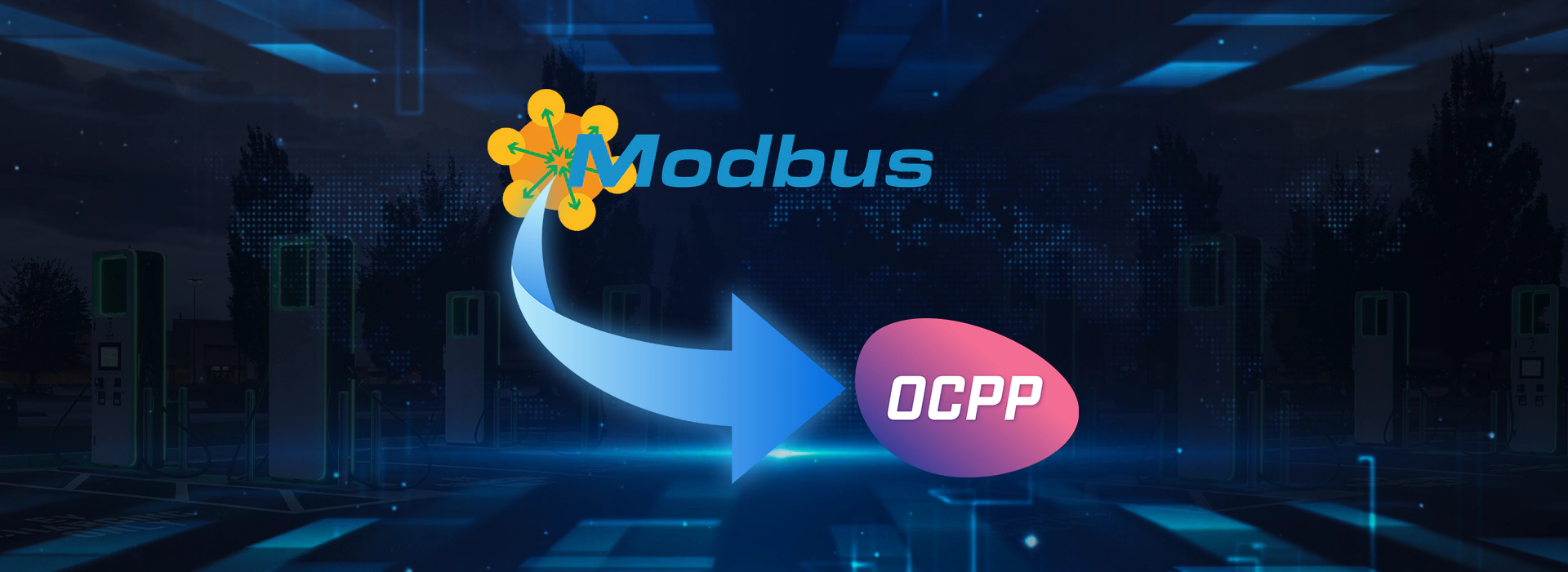
Modbus to OCPP Gateway
As electric vehicles (EVs) become more popular, the construction of charging infrastructure is also evolving. In this process, the role of communication protocols cannot be overlooked, especially Modbus and the Open Charge Point Protocol (OCPP). Modbus, as a mature industrial communication protocol, is widely used for data exchange between devices, while OCPP is specifically designed for the electric vehicle charging industry to facilitate efficient interoperability between charging stations and central management systems. Combining these two protocols can effectively enhance the management efficiency and intelligence of charging stations, laying the foundation for a sustainable transportation system in the future.

▶ Protocol Overview
- Modbus: A widely used communication protocol in industrial devices, primarily for data exchange between devices. It is simple and user-friendly, making it suitable for internal communication within electric vehicle charging stations.
- OCPP: A standardized protocol designed specifically for the electric vehicle charging industry, aimed at promoting interoperability between charging stations and central management systems. OCPP supports remote monitoring, firmware updates, and dynamic load management functionalities.
▶ Role of the Gateway
- Protocol Conversion: The main function of the gateway is to convert Modbus messages into OCPP messages and vice versa. This conversion ensures that data between different systems can be accurately understood and processed.
- Data Aggregation: The gateway can collect data from multiple devices and consolidate it into OCPP format for processing by the central management system. This enables efficient management of multiple charging points and their internal components, such as power meters and temperature sensors.
▶ Intelligent Charging and Load Management
- Intelligent Charging Strategies: By combining Modbus with OCPP, the gateway can implement intelligent charging strategies that dynamically adjust charging rates based on grid demand, energy prices, and the availability of renewable energy. This helps optimize energy consumption and improve grid stability.
- Remote Monitoring and Firmware Updates: The gateway supports remote operations such as monitoring charging point status, diagnosing issues, and updating firmware. These operations are executed by converting OCPP commands into Modbus commands at the charging point level, ensuring efficient management of all charging points.
▶ Application Cases
- Practical Applications: Many charging stations integrate Modbus with OCPP gateways to achieve efficient energy management. For example, some systems use platforms like ChargePilot to convert Modbus signals into OCPP for dynamically adjusting energy consumption of connected electric vehicles.
- Future Development: With technological advancements, the integration of Modbus and OCPP will support more advanced features such as vehicle-to-grid (V2G) capabilities and more complex user priority management. This flexibility allows systems to adapt to changing market demands and technological progress.
In conclusion, the integration of Modbus to OCPP not only enhances the internal management capabilities of electric vehicle charging stations but also strengthens their connectivity with external systems. This protocol conversion allows charging infrastructure to respond more flexibly to market demands and technological changes, supporting advanced functions such as intelligent charging, dynamic load management, and remote monitoring. As the electric vehicle market continues to grow and technology advances, the combination of Modbus and OCPP will become an important force driving the intelligentization of charging infrastructure, providing strong support for the global transition to sustainable transportation.